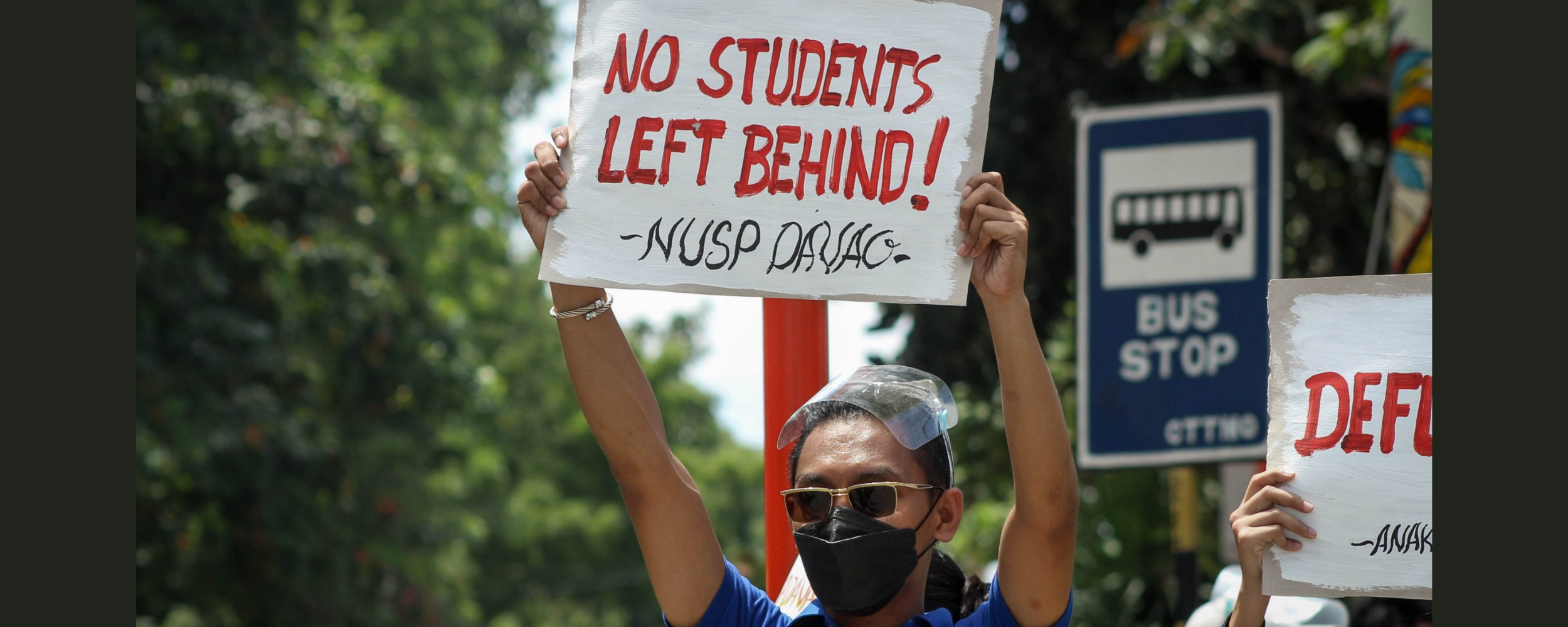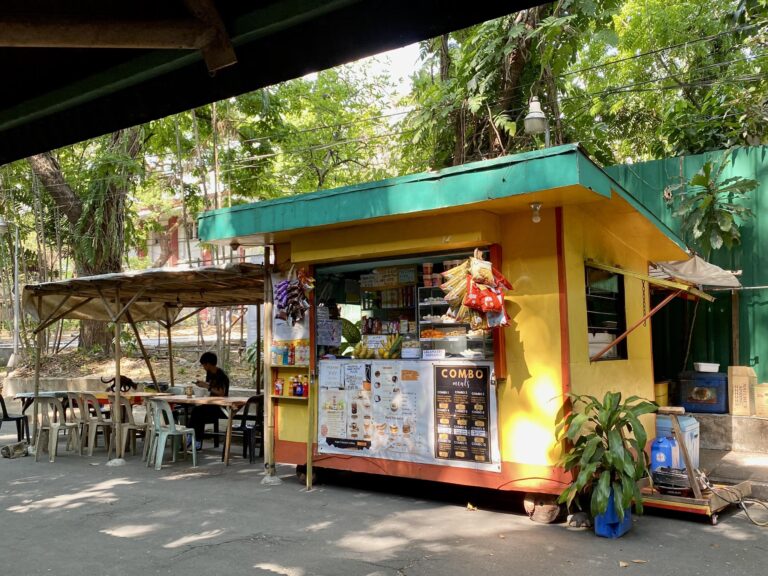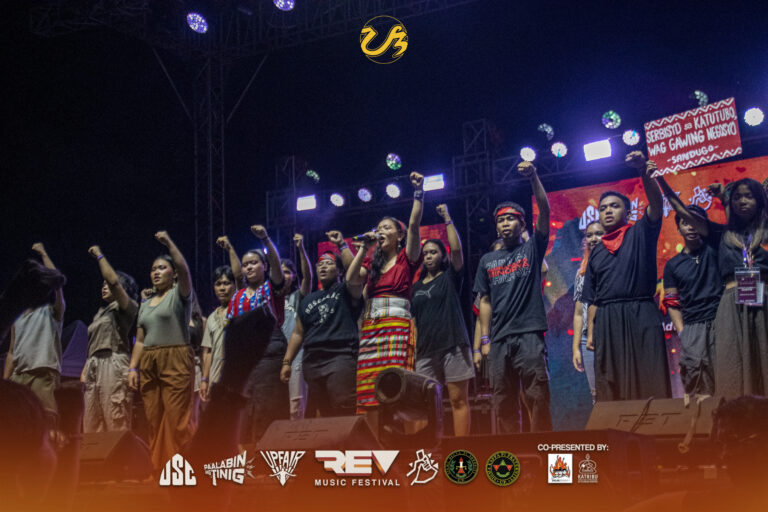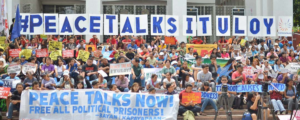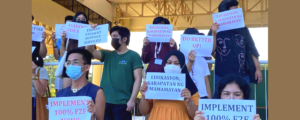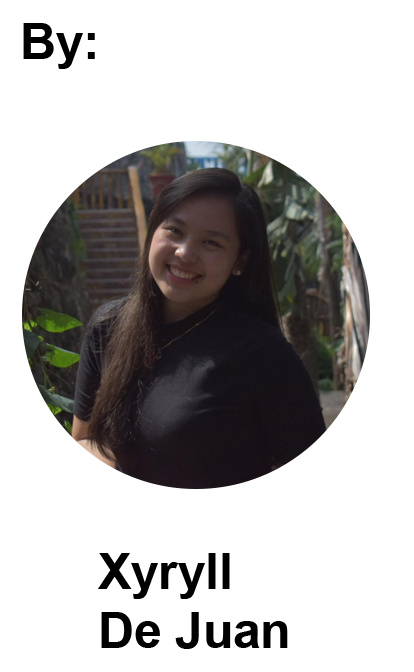
A week before the academic year starts, the University of the Philippines Office of the Vice President for Academic Affairs (OVPAA) released Memorandum No. 2022-127 which yesterday lifts the so-called academic ease policies set by the university for remote learning within two years since the start of the pandemic.
The memo said that UP has already adjusted and transitioned to the “new normal” and will be “living with the pandemic” starting September. However, concerns about this transition are constantly raised as the policy reversal, despite the pandemic still ongoing, seems to be a negation of the compassion that UP extended to its students.
Included in the memorandum is the lifting of the no-fail policy and the return of the 15-unit minimum load for students. This is amid the clamor and difficulty of students in obtaining units necessary for their curriculum, the impending P2.5-billion budget cut, and the unprepared transition to blended learning which still consists of mainly online activities no different from the earlier semesters.
Other rules:
These new University policies are in line with the comment made by the UP Diliman Vice Chancellor for Academic Affairs Theresa Payongayong in a virtual townhall discussion for a safe return to campuses: “We want to slowly go back to the way things were pre-pandemic.”
The memorandum also reinstituted the academic delinquency rules (warning, probation, dismissal, permanent disqualification), the maximum residency rule (MRR), degree program retention rules, prerequisites, and the deadlines for dropping and leave of absence. Attendance is now also required but faculty may adopt different attendance policies in consideration of students.
A brash decision
In an interview with SINAG, Jeman Malibiran, a 4th year BA-MA(H) Political Science student, expressed his dismay with the decision of the OVPAA to lift the academic ease policies.
“I think it is a brash decision that should have been consulted first with the students,” he said. According to Malibiran, the academic policies were instituted to aid students and faculty, especially in the challenges posed by the remote learning setup.
He also emphasized that we are still dominantly remote in the coming semester. Despite a shift to blended learning, face-to-face activity on the campuses are still limited.
Most of the subjects with face-to-face components are restricted only to a few slots, hence, only a number of students will be able to participate in such. For many academic units, only examinations will be done physically while classes remain online.
The problem caused by the inadequate class slots is also exacerbated by the raising of the required minimum load from 12 to 15 units despite accounts of students who are having difficulties in securing classes due to stricter rules on prerog and waitlisting.
Malibiran says that while we should try to understand where the administrators are coming from (for instance to improve student participation in classes) we should ask, “is this the only way to do so? And is it the most equitable and effective way?”
When asked if he thinks lifting the academic ease policies would improve student participation, Malibiran said no. This move by the university administration could further demotivate students as they “will comply out of rule, not out of intrinsic motivation”.
“This move, unfortunately, reverts us back to the old paradigm of education. It is not progressive. This move assumes that we have all adapted to the pandemic, to the remote setup fully. No, we haven’t,” Malibiran expressed.
An unprepared transition
More pressing matters are currently faced by the university such as the recent P2.5 billion proposed budget cutand the concerns of students regarding the Computer Registration System (CRS) and offered units by the university.
Read: https://sinag.press/news/2022/08/22/mala-lotto-na-mito-ng-swerte-ng-crs/
In the recently-concluded 53rd General Assembly of Student Councils, councils have filed four resolutions that centered on pro-student education policies. A significant resolution calling for a safe reopening of schools included the demands to retain academic ease policies removed by the UP administration.
Other proposals resolved to declare an education crisis, improve the mental health of students by providing basic student services and genuine academic easing, and the call for ligtas na balik-eskwela for humanities and social sciences programs.
“[The] pandemic has made students in the University confront a most fundamentally distressing conflict between attaining the most basic necessities of survival, services that would be provided under truly free and accessible education, and a claimed “academic excellence”, a standard forever shuttling out of reach and neoliberally excising anyone who would have otherwise flourished,” CSSP SC Chair Vayne Del Rosario stated in the recent GASC.
With just a week before a new academic year amid the pandemic, various organizations have shown their strong rejection of the decision made by the UP administration by calling for physical protests and a more inclusive, consultative, and pro-student University policy to improve education quality deteriorated by remote learning.
“UP brands itself as a leader in quality education in the Philippines. Why can’t we lead in this regard? We are falling behind,” Malibiran emphasized.
#DoBetterUP
#LigtasNaBalikEskwela
#NoStudentLeftBehind
Featured image courtesy of Sofia Roena Guan

